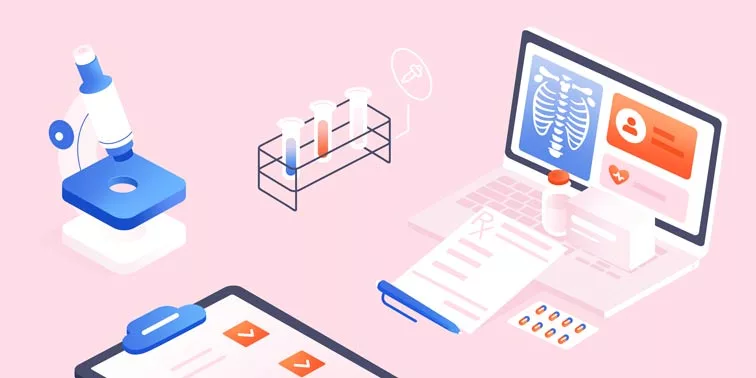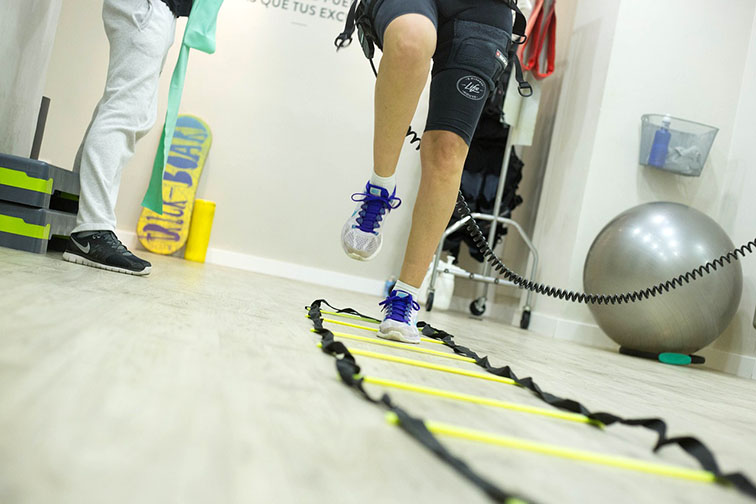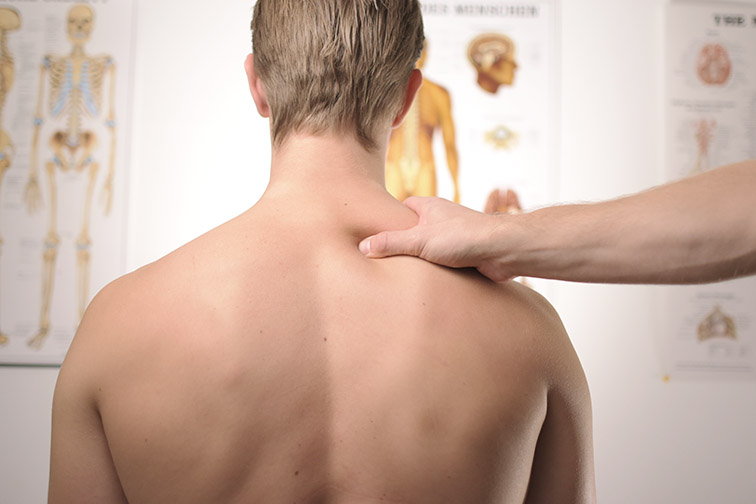
What you can do with a degree in physiology
There is a growing need for physiologists today, as the field of physiology is very wide and can even work along with other professions. If you are a young physiologist or even an undergrad and you are considering what your career options are, or what you will be able to do with your degree, then this article is written for you.
There are many questions that you will need an answer to, like – Are physiologists in demand? How much do physiologists get paid, how do physiologists work, what do physiologists study, and where do physiologists work?
This article will help you make the right choice as you begin your physiologist career and also provide further information as to the relevance of a physiology specialist in the contemporary world. As an undergraduate or someone interested in getting up to date information about this field, you can alternatively go through a physiologist journal. These journals have current information on various sub-fields of physiology and their relevance to people.
So what is Physiology?
Physiology can be described as the study of all the physical and chemical processes that take place in an organism for it to perform all the functions and activities that characterize a living system. Physiology is a sub-discipline of biology, and it involves studying how the different parts of an organism, which include cells, tissues, organs, systems, etc., work separately and jointly to ensure that a body functions appropriately.
Types of Physiology
There are naturally five types of physiology, which include the following:
- Human Physiology
- Animal Physiology
- Plant Physiology
- Cell Physiology
- Microorganisms
- Virus
For this article, we will be focusing on human physiology. This subfield of physiology is the study of how the human body works, and it is made up of the following parts:
- Cell Physiology – It is the foundation of human physiology; it involves studying the functions of cells in the body.
- Special Physiology – involves the study of functions of specific organs in the body. For instance, renal physiology is the study of the functions of the kidney.
- Systemic Physiology – involves studying all aspects of the functions of the body systems, e.g. cardiovascular physiology, reproductive physiology, respiratory physiology, etc.
- Pathophysiology – this part of human physiology involves the study of the impact of diseases on organ or system function.
- Evolutionary Physiology – this branch studies how physiology has evolved over many generations and incorporates many factors such as behaviour, changes as a result of geographic range and sexual selection.
- Developmental Physiology – captures the physiological changes during embryonic development and through the lifespan of an organism.
- Exercise physiology – looks at the processes that occur in the body during physical exercise. It also involves studying short and long-term effects of exercise on the human body.
Careers under Human Physiology
Some of the essential question physiologists ask has to do with places where physiologists work or the types of jobs that are available to someone with a degree in physiology. Some of the fields to consider under human physiology include the following:
1. Neurophysiology
Clinical neurophysiologists specialize in the diagnosis of central and peripheral nervous system disorders. The clinical neurophysiologist is also called neurologist, a brain specialist, a brain doctor, and a nerve doctor. They perform many procedures to evaluate the operation of the brain and nervous system. These procedures include EEG (electroencephalography) and (electromyography).
The duties of a clinical neurophysiologist include:
- Evaluating symptoms of a patient and medical history;
- Performs physical examination, which consists of the evaluation of blood pressure, vital signs, and checking the general health of the brain and nervous system;
- Assists during specialized procedures on the nervous system like the deep brain stimulation procedure for Parkinson’s disease;
- They Interpret specialized tests for the nervous system;
- Diagnoses acute diseases and conditions that affect the nervous system and brain, like seizures, Parkinson’s disease and multiple sclerosis.
Some other conditions that a neurophysiologist treats include epilepsy, vascular conditions, migraine, tremor, dystonia, etc. when you require the services of a neurologist, make sure you verify that he is board certified.
2. Exercise Physiologist
These are the most common types of physiologists, as more people come in contact with them more often. Exercise physiologists, in most cases, work with sports professionals and more often than not, the exercise physiologist job description involves investigating the impacts of exercise and sports activities on the human body. They analyze the training regime of sportspeople, body movements, respiratory system functions during physical activity, heart rate, and how an athlete can convert food into energy.
These findings help to offer solutions in the form of advice on how such an athlete can alter their training methods, techniques and diet to get the best performance. Exercise physiologists are commonly known to help injured players or sportspeople get back to full fitness.
Where do exercise Physiologists work?
If you are thinking of a career in this branch of physiology, you may have asked yourself many times who hires exercise physiologists. Many football clubs and other sports institutions provide exercise physiologists jobs that are lucrative and in high demand. Hospitals and health facilities also employ exercise physiologists, as more hospitals emphasize the importance of exercise and preventive care in helping patients recover from cardiovascular and pulmonary related diseases. Statistics show that the employment of exercise physiologists would grow 10% between 2018 and 2028.
Exercise physiologists’ salary is not so easy to peg at a particular point because different sectors pay at different rates. Still, data gotten from the Bureau of Labor Statistics show that the median annual wage for an exercise physiologist is $49,270. An exercise physiologist working with the government can earn as high as $72,440, while others working in other industries such as private hospitals can earn a median annual wage of about $48,860.
A lot of exercise physiologists also work privately and can be hired by individuals who require their expertise to help during recovery from injuries. So if you find yourself in a situation where you need professional help with recovery from an injury, you may do a quick search online for “exercise physiologists near me.” Once you get the results, take your time to go through the profiles of all the physiologists and select one that best meets your standards.
3. Cardiac Physiologist
Cardiac physiologists are also known as the following:
- Cardiological Technician
- Medical Technical Officer – Cardiology
- Clinical Physiologist – Cardiology
- Cardiac Clinical Scientific Officer (CCSO)
A cardiac physiologist carries out investigations and monitors the activity of the heart. They make use of equipment to record heart rhythm, electrical activity in the heart and other things related to the heartbeat and activity. Their findings are very critical as they help doctors to diagnose heart problems or conditions and proffer adequate treatment for such issues. Below are some essential qualities and skills that a cardiac physiologist must possess:
- Keen interest in science, technology and the anatomy of the heart;
- You must have a careful and thorough approach to work. Attention to detail is also crucial;
- You must be able to take accurate measurements, keep records and interpret data correctly;
- Excellent communication skills combined with teamwork and social skills to be able to work successfully with patients and doctors.
Cardiac physiologists earn an average of $45,440 and mostly hired by government hospitals, private hospitals, specialist investigation laboratories, etc.
4. Clinical Physiologist
Clinical physiologists are also called physiological scientists, and they work in hospitals and healthcare facilities. Their job involves examining and monitoring physiological organs of the human body to diagnose and offer treatment for physiological disorders and long-term illnesses. There are six different disciplines in the clinical physiology profession, which include:
- Cardiac physiologists
- Audiologists (include hearing therapists)
- Neurophysiologists
- Respiratory Physiologists
- Sleep Physiologists
- Gastro-intestinal physiologists
Clinical physiology involves testing, monitoring, diagnosing and analyzing physiological symptoms of patients through the use of medical and scientific instruments. This would also allow the physiologist to suggest treatment methods and drug therapy to be employed in individual cases. The job description of a clinical physiologist also includes tracking improvement and deterioration in a patient and hence, recommending other modes of treatment.
An average trainee in this field earns a starting salary ranging between $24,000 and $31,650, while a senior scientist can earn an annual salary of about $48,000. It is possible for professionals who are based in the metropolitan areas, to receive an additional 10-15% to maintain the higher cost of living.
For you to be able to practice as a clinical physiologist, you will need a BSc in Clinical Physiology, which must be accredited by the clinical physiologist board.
5. Physiological Psychologist
Physiologists play a critical role in mental health, and their expertise is needed for treating patients with mental disorders. Physiological psychology is the study of the physical basis of behaviours, thoughts and feelings.
Research has shown that there are brain differences in people living with a variety of mental disorders. The job of physiological psychologists is to determine the cause of this mental illness and suggest treatments for the problem. From depression to autism to schizophrenia, most psychological disorders can be linked to abnormalities in the brain.
The question most physiologists ask is what causes these neurological anomalies and how can it be avoided. Some of the common physiological explanations for mental disorders include the following:
- Infections – Schizophrenia, for example, is strongly associated with pre- and post-natal infections. Studies haven’t yet confirmed that schizophrenia is caused by infection, but it poses as a risk factor for the disease. Also, there are links between Obsessive-compulsive disorder and the strep infection.
- Malnutrition – several mental illnesses are connected to infection, but it isn’t the only physiological cause of mental issues. Malnutrition also plays a role in the development of mental and psychological disorders. Sometimes malnutrition may occur during infancy and early childhood, while at other times, it is connected to maternal malnutrition during pregnancy.
- Metal Poisoning – studies have shown that a high level of exposure of children to metal such as lead may cause mental illness on such a child. Lead aggressively attacks the brain and central nervous system of the body, causing coma, convulsions and sometimes death. It has been observed that children who survive severe lead poisoning are most times left with behavioural disorders and mental retardation.
Places Where Physiologists work
The physiologists working environment can be any of the following locations listed below.
- Universities
- Hospitals and other health care facilities
- Private owned or Government research centers
- Pharmaceutical companies
- Fitness facilities
- Rehabilitation clinics
- Medical and dental institutions
- Biotechnology industries
Physiologists are a part of a larger team of medical professionals and are heavily involved in providing healthcare services ranging from diagnosis to treatment of patients. The physiologists work hour ranges from 35 to 40hours weekly for clinical physiologists, while junior and trainee staff are usually placed on shifts every day of the week.
How many Physiologists are there?
There are different types of physiologists, and with specific areas of specialization. Below is a list of different kinds of physiologists.
- Clinical physiologists
- Viral physiologists
- Animal physiologists
- Plant physiologist
- Exercise physiologists
If you wish to have a career in physiology, you must have a relevant degree in a science course such as physiology, medicine, biotechnology, zoology, physiotherapy, botanical sciences, sport sciences or biomedical sciences.
Top Physiologists Today
Below is a list of some of the most influential physiologists who continue to produce groundbreaking work today.
- Peter J. Ratcliffe
- James P. Allison
- Tasuku Honjo
- William C. Campbell
- Satoshi Omura
- Ferid Murad
- Jeffrey C. Hall
- Robert Edwards
World Famous Physiologists
Many people have made a notable contribution to the field of physiology over the years. The list below shows some of the significant figures in this field.
- Raymond Heimbecker
- Ivan Sechenov
- Jared Diamond
- Edgar Adrian, 1st Baron Adrian
- Herbert Jasper
- Albrecht von Haller
- Alan Lloyd Hodgkin
- Henri Dutrochet
- Arthur Winfree
- Robert G. Edwards
With the profession becoming more popular in the last decade, and more people choosing a career in physiology, there is an excellent opportunity for young physiologists to make their mark in this profession with notable inputs just like the people listed above.









